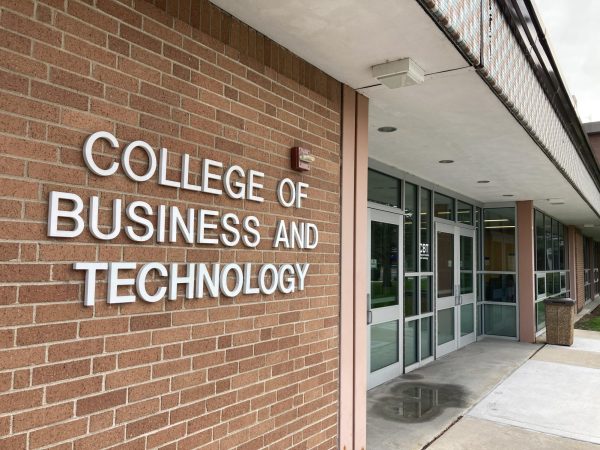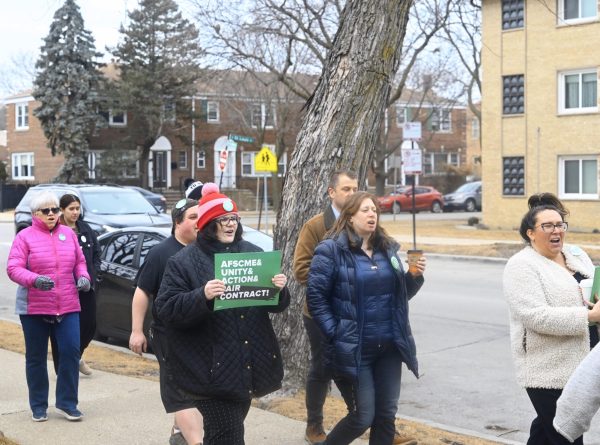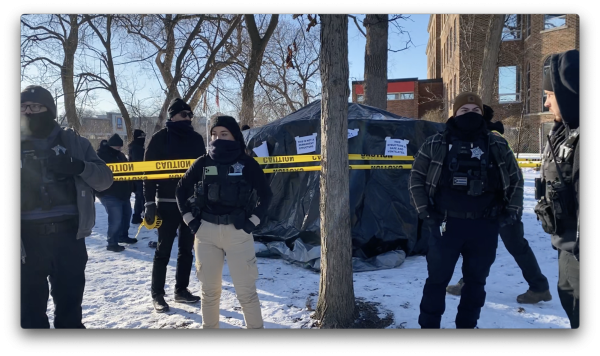The Fee for a Greener NEIU
Recent News
The Green Fee Committee discussed present and past initiatives and the future allocation of their budget, currently at $66,000 at their Nov. 5 meeting.
The green fee, three dollars charged per semester alongside NEIU’s tuition, is used to fund green projects on campus and obtain environmentally friendly technology.
Discussed during the meeting was a need to get the word to members of the campus community unaware that the comingle bins are for recycling and that all forms of recyclable waste can be mixed together.
Ron Jacobson, superintendent of buildings at NEIU, said that the most common objection he’s heard to comingle bins is that they could bring on a pest problem from people disposing of food and edible waste. He added that none of the waste stays long before being removed.
Others members of the committee said that people throw food waste in comingle bins.
“That’s the nature of the beast,” Jacobson said. “A lot of people just don’t care. We don’t have to be the recycle police to stop people from doing that.”
The committee moved on to discuss future initiatives to provide green energy and services at the university.
Physics Instructor Bob Moltaji said he had a new proposal for a vertical wind turbine that would be a better choice than previous turbine proposals. He estimated the cost of the turbines to be between $10,000-$11,000.
There was a consensus among the members that larger projects, such as solar panels and wind turbines, would hold more of an educational value for students than save the school money on its energy bill. It was unanimously decided that an energy audit for the university was in order. Green Fee Committee student member George Mason agreed.
“I think an energy audit is a very good idea.” Mason said. “You can find out where you come from and where you are headed and the progress that has been made.”
The Green Fee Committee assembles every Thursday for a budget conference and their meeting is open, once a month, for all students and faculty of NEIU to attend.
Among the committee’s investments: Low flow toilets installed to reduce water consumption; water fountains set up to refill water bottle, encouraging a reduction in plastic waste; the addition of a bicycle tire pump/care station and providing new recycle and trash bins around the campus.
The green fee committee was also responsible for NEIU’s purchase of solar panels. Melinda Storie, assistant professor for the department of geography and environmental studies, explained there will only be a 100 year payout since the purchase of the panels 10 years ago, meaning the money saved should outweigh the cost of the solar panels within another 90 years from now.
The committee is open to suggestion by written proposal on methods to develop the university’s environmental footprint and sustainability.
Your donation will support the student journalists of Northeastern Illinois University's The Independent, either in writers' payment, additional supplies and other items of note. Your contribution will allow us to purchase additional equipment for writers/photographers/illustrators and cover our annual website hosting costs.
Laura Rojas








